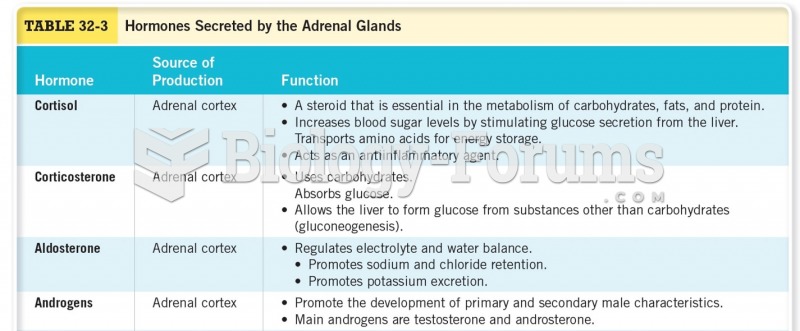|
|
|
Bacteria have been found alive in a lake buried one half mile under ice in Antarctica.
The effects of organophosphate poisoning are referred to by using the abbreviations “SLUD” or “SLUDGE,” It stands for: salivation, lacrimation, urination, defecation, GI upset, and emesis.
Multiple experimental evidences have confirmed that at the molecular level, cancer is caused by lesions in cellular DNA.
Every flu season is different, and even healthy people can get extremely sick from the flu, as well as spread it to others. The flu season can begin as early as October and last as late as May. Every person over six months of age should get an annual flu vaccine. The vaccine cannot cause you to get influenza, but in some seasons, may not be completely able to prevent you from acquiring influenza due to changes in causative viruses. The viruses in the flu shot are killed—there is no way they can give you the flu. Minor side effects include soreness, redness, or swelling where the shot was given. It is possible to develop a slight fever, and body aches, but these are simply signs that the body is responding to the vaccine and making itself ready to fight off the influenza virus should you come in contact with it.
During the twentieth century, a variant of the metric system was used in Russia and France in which the base unit of mass was the tonne. Instead of kilograms, this system used millitonnes (mt).
 Note the thickening of the intestinal wall and the erosion of the inner lining of the ileum, often s
Note the thickening of the intestinal wall and the erosion of the inner lining of the ileum, often s
 Mononucleosis is caused by the Epstein–Barr virus. Symptoms of the infectious disease are swollen pa
Mononucleosis is caused by the Epstein–Barr virus. Symptoms of the infectious disease are swollen pa





